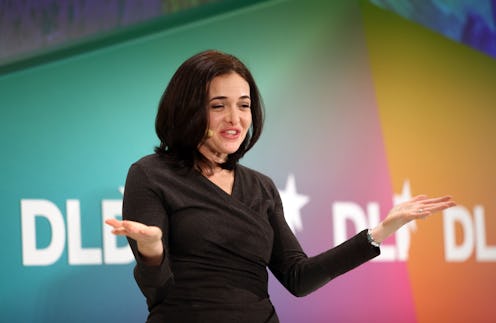News
Why Women Rock the LA and NY Tech Industries
News that New York and Los Angeles are growing their tech industries and gunning for Silicon Valley may intensify the L.A./N.Y. rivalry, but it’s a win-win for women.
Though involvement in the New York and Los Angeles tech industries still leans heavily in favor of men, AM New York reports 18 percent of startups in N.Y. are founded by women compared to 10 percent in Silicon Valley. The LA Times noted in May that women own “several dozen” of the new companies driving the city’s tech boom, and quotes venture capitalist Dana Settle who says, “In the last two or three years I’ve seen more women-run businesses or women-men co-founder businesses than I’d seen in my entire career.”
Women interviewed at a Los Angeles tech salon told the Times that the city benefits from the absence of the cliquish male programmer culture endemic in the Bay Area. In L.A.’s nascent market, where longtime connections and name recognition matter less, women have risen faster and more frequently in tech company ranks. Adda Birnir, co-founder of Skillcrush, an online digital literacy startup, echoes in AM New York that N.Y.’s relative youth as a tech center allows it to “redo things and do them right” when it comes to challenging the gender gap.
New markets have created more opportunity for women in tech. But industry ladies have gotten wiser as well, banning together to form support groups in the face of “boy’s only poker nights.” There’s the newly founded Coalition for Women in Technology that “supports women in tech through career development, mentoring, and more” as well as a summer camp launched by Cornell NYC Tech and Girls Who Code to teach middle school-aged girls advanced computer and web development skills.
Additionally, while Facebook’s Sheryl Sandberg and Yahoo’s Marissa Mayer evidence women’s gains in the ranks of established Fortune 500s, an increasing number of tech ladies seem to be embracing their status as “outsiders” as motivation to start their own companies — where they make the rules. Most famous, perhaps, is Nasty Gal founder Sophia Amaruso, who told the LA Times, “Many men in the tech industry are kind of baffled by me… I just came out of the dark with no education and no business and built something bigger than most of them and did it without tooting my own horn.” (At least not until her company became the fastest-growing retailer in the country).
New York and Los Angeles’ growing tech industries demonstrate that ensuring equal opportunity for those historically shutout of the entrepreneurial sphere is more than a social issue: it’s an economic one. The US Economy is like the human brain: if we could use more than the white, male portion, we’d be X-men by now.
